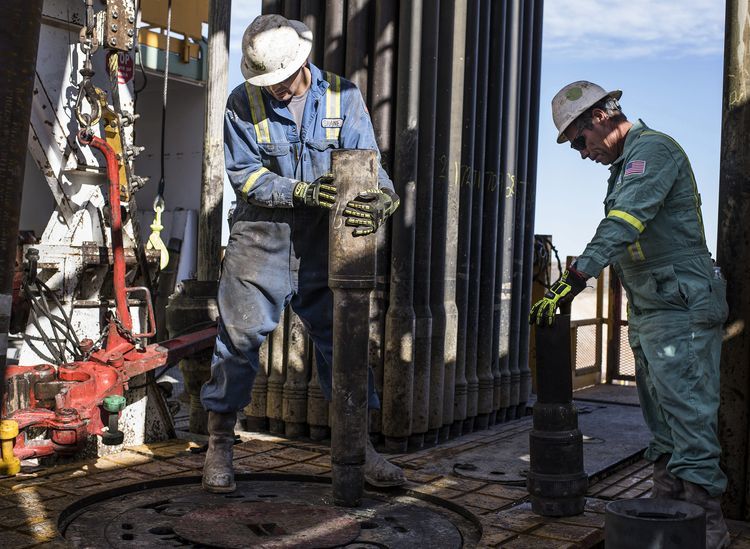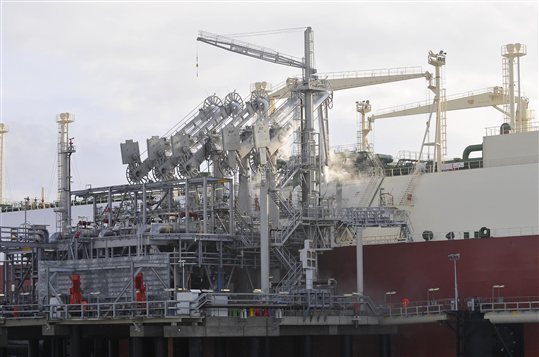
It took a surge of gas flowing out of UK for the country to finally take part in the US shale boom.
A cargo of liquefied natural gas from Sabine Pass, Louisiana, is scheduled to dock in southern England’s Isle of Grain terminal on Saturday, making the UK the seventh European Union country to receive gas from America’s shale rock.
The arrival comes as the volume of gas stored at UK LNG terminals languishes at the lowest level for this time of year since 2009 and fuel rushes out of Britain to the mainland, where it can fetch higher prices or be stored for winter. Flows from the UK on a two-way pipeline to Belgium rose to just short of a record on Wednesday. At the same time, the spread between US and UK prices has widened to the highest level since April, boosting the trade’s attraction for American sellers.
“Certainly the pricing signals, plus the higher exports to the Continent, suggests they could be using facilities in Europe to capitalize on winter prices,” said Nick Campbell, an energy risk manager at Inspired Energy Plc in Preston, England. “The ultimate question is whether one swallow makes summer?”
As natural gas prices in the US fell 16 percent since May 12, the premium in the UK rose to $1.90 per million British thermal units over the US benchmark, the most since April. That may have boosted the UK’s appeal, together with its proximity compared with bigger buyers in Asia and its relatively liquid market.
Having not received a cargo since June 19, the Isle of Grain terminal also has room to store the fuel. It can also be sent out into the UK network for usage, or resold to a higher priced market abroad.
Dutch gas has been trading at a premium over UK fuel since April after being at a discount during the previous eight months, making it attractive to export fuel from Britain to the mainland.
Earlier this year Ineos Group Ltd. received a cargo of ethane gas from the US, which is used in chemical production and produced along with the methane that is the main component of LNG. The Isle of Grain is the only one of the UK’s three LNG terminals able to carry out so-called reloads, where cargoes are exported from storage tanks when it becomes profitable to do so.
“I think it’s mostly a liquidity and storage issue,” said Pierluigi Frison, a gas trader at Green Network Energy Plc in London. “Isle of Grain is a typical reload site, which will grant useful optionality during the winter.”
Recommended for you
